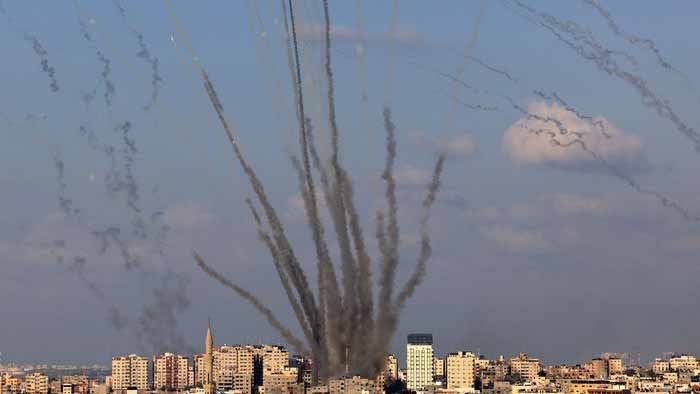Simchat Torah and the Jewish Love of Life
Israel’s culture cherishes life, while Hamas and its allies worship death.

Fifty years after the Yom Kippur War, Israelis face an attack launched on another holiday—Simchat Torah, which brings the festival season to a close. As in 1973, Israel’s enemies took advantage of Israeli soldiers celebrating with their families at home. As in 1973, the war shattered a feeling of complacency in the Jewish state—five decades ago because of the stunning success of the Six Day War; today because of the nation’s remarkable missile-defense system, the Iron Dome.
Amid the striking similarities, there is an important difference. In 1973, Egyptian President Anwar Sadat launched his war to strengthen his negotiating hand as he pursued an elaborate geopolitical strategy that entailed an alliance with the U.S., detachment from the Soviets, and eventually peace with Israel.
Hamas seeks the death of every Jew, a goal stated explicitly in its charter, which asserts as a religious obligation: “The Day of Judgment will not come about until Muslims fight the Jews . . ., when the Jew will hide behind stones and trees. The stones and trees will say, ‘Oh Muslims, Oh Abdulla, there is a Jew behind me, come and kill him.’ ” That sentiment drove Hamas’s terrorists as they hunted down, tortured and murdered soldiers and civilians, elderly and children.
The juxtaposition of Jewish celebration and war underlines the conflict’s civilizational import. Simchat Torah, the “Joy of the Law,” marks the year’s completion of the Torah, the five books of Moses, which is read aloud weekly in synagogue. Near the end of Deuteronomy, in a passage read late in the cycle, is one of Moses’ last exhortations: “Therefore choose life, so that thou and thy children may live.”
The verse captures Jewish history, including the story of modern Israel. Among the horrific images of massacres and abductions, I was struck by a video of an Israeli reservist, called up to army service, watching via Zoom the circumcision of his 8-day-old son. He pronounced the traditional liturgy over his phone, concluding with one of the most poignant blessings in Jewish life: “Blessed art thou, Lord our God, . . . who has kept us alive, allowed us to endure, and allowed us to reach this moment.”
Continue reading at the Wall Street Journal [subscription required].
Israel’s culture cherishes life, while Hamas and its allies worship death.
Israel’s culture cherishes life, while Hamas and its allies worship death.

